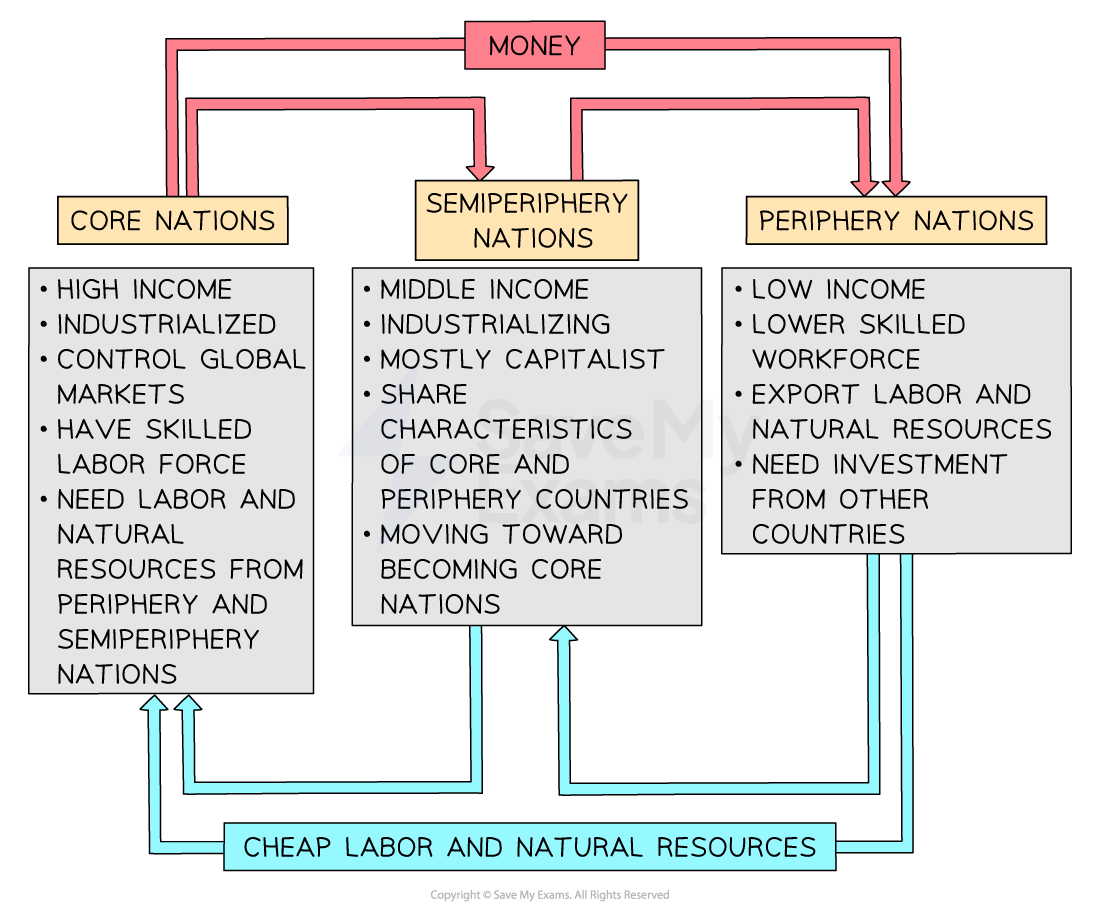Characteristics of Three Emerging Superpowers
| |
India |
Brazil |
Russia |
| Political |
- Poor relations with some neighbours including China and Pakistan
- Member of the G20 and UN
- Largest democracy in the world
- Has diplomatic relations with 201 nations
|
- Significant corruption throughout Brazil
- Politically unstable - far right Bolsonaro has recently been voted out and previously impeached president re-elected
|
- Reduced global influence
- Role in supporting President Bashar al-Assad's regime in Syria
- Invasion of Ukraine in 2022
|
| Economic |
- The 5th largest economy in the world
- Increasing influence over global financial decision making
- Attracts many TNCs and FDI
- Many people remain in poverty
|
- Produces over 50% of South America's GDP
- Large amounts of natural resources
|
- 11th largest GDP in the world
- Decreasing influence over global financial decision making
- Lack of investment by TNCs and FDIs
- Significant levels of inequality
|
| Military |
- Third largest military expenditure in the world
- Second largest armed force
- A nuclear power
|
- Largest military force in South America
- Limited role in international conflicts
|
- Fifth largest military force in the world
- Wide scale corruption
- Ageing weapons and vehicles
- A nuclear power
|
| Demographic |
- Second largest population in the world
- Large English speaking population
|
- Seventh most populated country in the world
- Population distribution is very uneven - most people live by the coast
|
- Population is experiencing slow decline
|
| Cultural |
- Bollywood now produces more films a year than Hollywood
- Indian food popular in many areas of the world
|
- Football team - World Cup winners five times
- Rio Carnival
|
- Known for literature, classical music, art and ballet
|
Global environmental governance
- Climate change is an increasing concern
- Any superpower will need to engage with other countries to lead the way on tackling climate change
- This will include a leading role in the UN Conference of the Parties to the UN Framework Convention on Climate Change (COP)
- COP27 was held in Sharm el-Sheikh, Egypt




